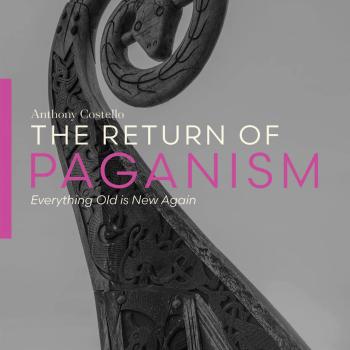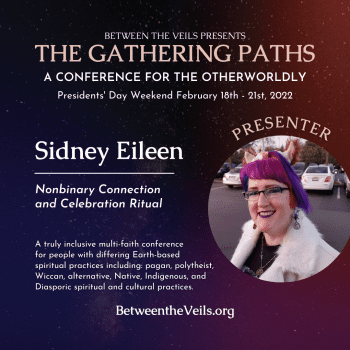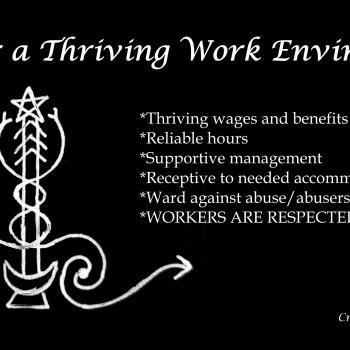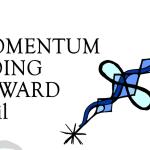Most words in the English language have multiple definitions, and sometimes those definitions are wildly different. I did not think “forgiveness” was one of those words with wildly different definitions until I started down a rabbit hole of academic articles discussing the definition and use of the word “forgiveness” in the field of psychology. Since most of us use externalized criteria for forgiveness, it can cause a cognitive disconnect when an expert in psychology implicitly uses their purely internal definition to reach out to lay people. Also, abusers and users often take advantage of disparate definitions to push toxic forgiveness under the guise of healing forgiveness. Instead of promoting genuine healing, toxic forgiveness usually gives perpetrators a free pass on bad behavior and allows toxic or abusive situations to continue.

Defining “Forgiveness”
Definition of forgive from Dictionary.com
verb (used with object), for·gave [fer-geyv], for·giv·en, for·giv·ing.
- to grant pardon for or remission of (an offense, debt, etc.); absolve.
- to give up all claim on account of; remit (a debt, obligation, etc.).
- to grant pardon to (a person).
- to cease to feel resentment against:
to forgive one’s enemies.- to cancel an indebtedness or liability of:
to forgive the interest owed on a loan.verb (used without object), for·gave [fer-geyv], for·giv·en, for·giv·ing.
- to pardon an offense or an offender.
Externalized Meanings of Forgiveness
When I talk about or contemplate forgiving someone, I usually use every definition listed above. In fact, I usually feel that if I cannot check off every item, a person is not forgiven. In particular, in order to feel that I have forgiven someone, I must both stop feeling resentment, and they must either have made amends or I must cancel their indebtedness to absolve them of their wrongdoing. That is because if the debt still exists, for me it remains a source of resentment and pain that prevents externalized forgiveness. I am not talking about physical debt here. I am talking about emotional debt or work debt, which was created by emotional harm done by the other person’s actions.
It is also extremely common in American society for forgiveness to be viewed as a path to reconciliation. In that context, when someone is forgiven, you are saying that all is good between you. We tend to feel that when we forgive someone, we are accepting that what they did is not a barrier to thinking well of them or having future good relations. It is believed that through forgiveness, reconciliation is possible even though we never forget what they did and may not fully absolve them of past wrongdoing.

Internalized Forgiveness in the Field of Psychology
The field of psychology has an entirely different approach to defining forgiveness, which hyper focuses only on “4) to cease resentment against”. By using just this one definition, and casting out all the others (and the nuance they bring to the overall understanding of the word), it creates a perception of forgiveness that is directly at odds with what most of us mean when we talk about forgiveness. According to Greater Good Magazine (produced by UC Berkeley), Forgiveness can be defined as follows:
“Psychologists generally define forgiveness as a conscious, deliberate decision to release feelings of resentment or vengeance toward a person or group who has harmed you, regardless of whether they actually deserve your forgiveness.”
In other words, the field of psychology defines forgiveness as an entirely internal process, whereby you work through your grief around a situation and eventually let go of your anger and resentment so you can heal. It has nothing to do with absolving anyone of anything, condoning any behaviors, canceling debts, or forgetting past bad deeds. Instead, forgiveness is the natural end result of healing from the trauma, so you stop carrying around your pain and instead leave it in the past. Also granting externalized forgiveness is optional, and depends upon the person doing the forgiving and the situation being forgiven.
Conflict Between the Two Definitions
A cognitive disconnect can easily happen when psychologists say we must forgive in order to heal. They mean that we must let go of resentment in order to complete the healing process after trauma. That is true, but if you, personally, understand forgiveness as an external mechanism which means granting absolution to those who have done wrong, you are going to get a very different message from the internalized one which was intended.
The disconnect is just as problematic when you view forgiveness primarily as a route to repairing relationships. If you hear “you need to forgive them”, the word “forgive” carries with it the implicit demand of resuming the relationship. If you do not want to repair that relationship, it is easy to become wracked with guilt, because social conventions tell us that when we forgive someone, we should be able to “move past” the bad deeds and still be friends. If we cannot do that, according to social convention we have not truly forgiven them.
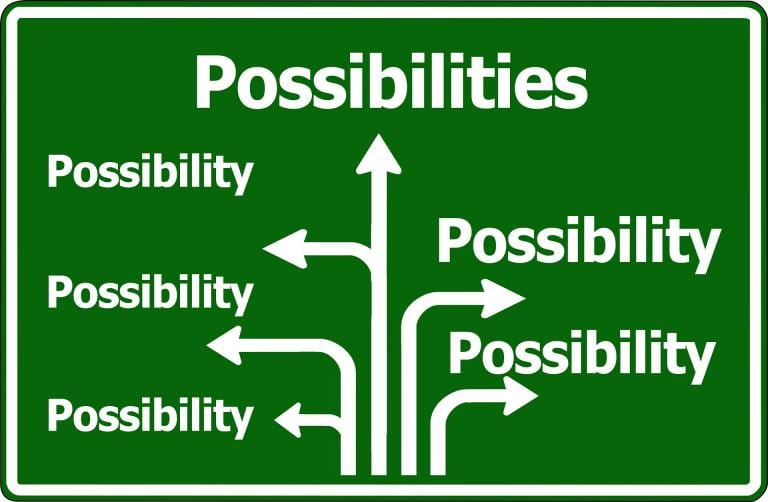
Religious Definitions of Forgiveness
This gets even messier when we bring in religious definitions of forgiveness. I openly admit that the definition of forgiveness I typically use was informed by a Christian upbringing, but there are many more ways of looking at forgiveness than just that one.
It would be outside the scope of this article to explain all religious definitions of forgiveness which exist, or to explain any of them in depth. Instead, this is a brief sampling to illustrate the wide variety of views different religions have on the issue of forgiveness.
Christian Forgiveness
I am aware that there can be a lot of nuance in biblical forgiveness from a theological or philosophical perspective, but the typical way I have experienced Christian forgiveness is summed up extremely well in this article on Learn Religions.
“Refusing to forgive is a sin. If we receive forgiveness from God, we must give it to others who hurt us. We cannot hold grudges or seek revenge. We are to trust God for justice and forgive the person who offended us. That does not mean we must forget the offense, however; usually, that’s beyond our power. Forgiveness means releasing the other from blame, leaving the event in God’s hands, and moving on.”
Honestly, due to the influence of Christianity on Western society, I believe this is where most of us derive our definition of forgiveness, with its emphasis on not only letting go of grudges, but ignoring the event in whole or in part, for the sake of reconciliations and “taking the high road”.
Jewish Forgiveness
Forgiveness in Judaism is significantly more complicated, but every article I read indicated that forgiveness requires actions from both the person who did wrong, and the person who was wronged. When someone is wronged, the burden is on person who did wrong to make amends, and sincerely offer repentance to the one who was wronged. Even then, the person who was wronged is under no obligation to forgive if they have any doubt about the sincerity of the repentance.
I am omitting a lot of important nuance and ritual in reducing the description to only one paragraph, so if you are curious about how it works, I highly encourage you to read up on the subject as it is written by practitioners of Judaism.
- Is Forgiveness Necessary? BY RABBI DAVID J. BLUMENTHAL
- Sin and Forgiveness, excerpt written by Rabbi Yael Ridberg

Buddhist Forgiveness
Forgiveness Is Not Buddhist by Ken McLeod provides an interesting perspective on how, as Buddhism has moved into new cultural groups, the concepts of compassion and letting go of attachment have been conflated with concepts of forgiveness. I would go so far as to say that how he defines forgiveness vs. traditional compassion and releasing attachments, lines up pretty well with the externalized forgiveness of debt and reconciliation vs. the internalized forgiveness used in psychology.
“…forgiveness is a notion foreign to Buddhism. Many Asian teachers do not understand the nuances of forgiveness in Western usage, and they naively associate or equate it with teachings and practices with which they are deeply familiar. On the other hand, few Western teachers take time to consider, let alone understand, the Abrahamic resonances that color their interpretations of Buddhism.”
To once again be woefully brief, forgiveness is an absolution of debt which was incurred when a bad deed was committed. Since debt systems are inherently unenlightened, seeking resolution to debts is not Buddhist in nature. However, seeking inner peace and inner resolution about the events by releasing anger, guilt, shame, and so on, is Buddhist in nature. “We can only take responsibility for our actions and the intention motivating our actions.”
The Ancient Heart of Forgiveness by Jack Kornfield, in contrast, views forgiveness entirely outside the debt model. He uses the word forgiveness in an internalized way that mirrors how psychology defines forgiveness. This includes the practices of compassion and releasing of attachments that Ken McLeod holds separate from forgiveness.
Pagan Forgiveness
If you go digging around in mythology in just about any pantheon worshipped by modern pagans, you will typically find a great deal about the importance of honesty, reciprocity, and perseverance. Forgiveness, on the other hand, is talked about very little, if at all. I, personally, take this to mean that forgiveness is of little importance to the deities and philosophies of most forms of paganism, so the nuance of forgiveness is left to those involved in the deeds needing forgiveness, or secular systems of judgement.
Even Wicca has no consensus on forgiveness that I can find, with individual people and covens mostly arriving at their own perspectives on the importance and/or mechanisms of forgiveness. Those perspectives seem to be influenced by either more mainstream religions, modern psychology, or personal experience. It is, after all, hard to internally change the definitions and requirements of forgiveness with which you were raised. What we learn about forgiveness as small children is formative and becomes part of the foundation of how we function in a society.
- A Pagan (and Realistic) Perspective on Forgiveness by John Beckett
- Is There Forgiveness in Paganism? By John Beckett
- A Guide to Forgiveness (By a Witch Who Sucks at Forgiving) by Courtney Weber

Forgiveness as Debt
Regardless of the psychological definition of forgiveness, most cultures define forgiveness, at least in part, in terms of debt. This is the way I have always viewed forgiveness. When you view forgiveness as the possible end result of a debt, it requires that the debt be either paid, or be absolved, before forgiveness can be achieved. This is an externalized form of forgiveness, because it requires action on the part of multiple people.
This is the principle behind legal judgements which involve community service or monetary compensation for pain and suffering. Many debts, especially emotional ones, cannot be repaid with an equivalent sacrifice, so we use other means to give recompense. That way the guilty party offers something of value to the community or individual who was damaged, and, hopefully, reconsiders their actions and feels remorse.
When emotional harm is caused to a victim, it is depressingly rare for those who caused such harm to acknowledge wrongdoing or voluntarily make amends. That means in order to achieve debt-based forgiveness, the victim must usually absolve the perpetrator of their wrongdoing or cancel the debt. This kind of externalized forgiveness is more about the deed, and reconciliation or revenge, than personal growth or healing, but it can still be an important component of healing for many people and many situations. If you have been wronged, it feels extremely good and can be very healing to have the closure of genuine remorse and recompense.
The problem is that in order for debt-focused forgiveness to grant healing, it must start with the one who committed the bad deed. That means it is mostly or entirely out of our control if we are looking for healing, because you cannot force another person to feel remorse. They must sincerely express regret for what they did, take responsibility for their deed and all fallout, and if possible, make amends for that deed. That usually starts with apologies. For minor deeds, like misgendering someone, this is as simple as quickly saying sorry, correcting yourself, and moving on. If the deed was more harmful, be specific about what you are apologizing for. “I am sorry I did a thing,” is a very different sentiment from, “I am sorry that you were hurt by the thing I did.” The first apologizes for the deed. The second blames the victim for feeling bad about the deed, and is not an apology at all.
What needs to be done to make amends or achieve reconciliation will vary tremendously depending upon what happened, and how much harm was done. To anyone who voted for or enabled white supremacists, efforts at making amends will need to be extensive, and should start with denouncing white supremacy and supporting political movements, nonprofits, and businesses which are working towards equality, aiding marginalized people, or owned by marginalized people.
If they are not willing to do those things, then it is not forgiveness they are seeking, it is absolution without repercussions. If they are not willing to do those things, they are not taking responsibility for their deeds or paying their debts, and thus, have not earned externalized forgiveness.
It is worth mentioning, however, that even if people do go to such efforts, no one they have wronged is under any obligation to forgive. Some deeds, and the damage which results, are not forgivable in debt-based forgiveness. Some debts are so deep that there is no way to repay them satisfactorily, but attempting to do so means the person can improve themselves and stop incurring even more debts.

Never Try to Forgive and Forget
I grew up constantly hearing “always forgive and forget”, but every single forgiveness practice I looked at for this article acknowledged that forgetting is impossible. That makes sense, because if a grievance is more than an inconvenience, forgetting it is not going to happen. You certainly cannot force yourself to forget something. Trying to force it will only keep the thing on your mind. What my parents actually meant was to forgive and ignore, to pretend that it had never happened.
When we experience trauma, most of the time we will seek to find ways to prevent it from happening again. Trauma teaches us to create boundaries, and how to maintain them. As we heal, we learn how to balance boundaries and other defenses with love and trust, so that we are neither fortified in a castle with machinegun turrets fueled by our pain, nor blindfolding ourselves and skipping towards a cliff. Instead, through healing we can learn to balance boundaries and openness, so that we are able to live fulfilling, secure, and happy lives, even after experiencing overwhelming trauma.
Forgive and forget is a form of toxic forgiveness because it demands that you put down your boundaries, relinquish control, and let things happen as they will. It demands that you put on that blindfold and not only pretend that you have never fallen off a cliff, but it wants you to pretend that cliffs do not exist at all. If the original event never existed, you must also pretend that no harm ever occurred. If the existing harm is denied validity, not only can the perpetrator never be held accountable, but you are not allowed to create any boundaries or defenses against future events.

Forgiveness as Part of the Grieving Process
Grief and forgiveness is really important, so I may go into this in greater detail later in its own article, but it definitely bears mentioning here. I have talked about grief as an expression of love, but the kind of grief that is associated with forgiveness can be quite different.
Grief is an involuntary emotional response to a loss. We cannot choose when or what we grieve, whether we are grieving a broken pen, the death of a pet or loved one, the closure of a beloved business, or the mental and emotional health we had before experiencing trauma.
When we experience trauma, it usually creates grief, because at a minimum we have lost who we were before the trauma. We must process that grief, and heal the trauma, in order to achieve the kind of internalized forgiveness psychology talks about. We must do the shadow work needed in order to process the harm that was done, and resolve or release the pain, before we can achieve personal healing. This is a process which is highly individual. Each of us can only achieve healing in our own time. Internalized forgiveness usually comes naturally as the healing process concludes, because in order to heal we must evnetually reach a place where we can let go of our resentment and anger around past events. When we hold resentment or anger or fear as a shield or a sword, instead of creating healthy boundaries, it perpetuates the trauma by holding it in the present instead of letting it exist solely in the past.
When we try to force the end step of forgiveness before resolving the grief and healing the trauma, it is far more likely to create resentment and guilt than to resolve it, thereby prolonging or setting back the healing process. This is because when we are not yet ready to set down the pain we are wielding as our sword or shield, we will likely spend so much time looking over our shoulder we neglect to actually move on or let go. It also means we may not have alternative healthy mechanisms to protect ourselves from future traumas, leaving us vulnerable. These dangers are particularly present when forgiveness is viewed as an externalized process. When forgiveness is primarily a debt or a means of reconciliation, and we have not yet developed healthy defenses and boundaries, the added pressures of absolution and reconciliation can leave us open to repeat victimization.
I am not a Buddhist, but I did find benefit in concepts of releasing attachments when dealing with my own past trauma. It provided me a philosophical framework for achieving what psychologists mean by forgiveness, despite the fact that I understood forgiveness in an externalized way, as a social contract in the context of debt and reconciliation. Since the traumas I have spent most of my life working on are never going to be repaid, and reconciliation is impossible, I needed a different framework for achieving the internal forgiveness of letting go of my pain, anger, resentment, and heartbreak.
It is possible to do this kind of work on your own, but I do recommend finding a skilled psychiatrist, if you have access to one, to help guide you through these processes. If you viscerally understand forgiveness as an externalized process, and instead want to pursue internalized forgiveness, I very highly recommend making efforts to work with a skilled mental health professional if at all possible. This is because you will not only need to process your trauma, but change your internal definition of forgiveness and thus your internal dialog around the act of forgiving.

Compulsory Forgiveness is Toxic
There is an often overwhelming pressure in American society to forgive, completely and quickly. I believe this stems from the influence of Christianity, and at every turn it is encouraged by abusers and users and bullies. Forgiveness is placed on a high pedestal, as the pinnacle of “good” behavior and what it means to be a virtuous person, while refusing to forgive is very often frowned upon or even vilified as a worse deed than the one we are expected to forgive.
I understand that there are those who will say that toxic forgiveness does not exist, because if forgiveness provides no healing, it is not actually forgiveness at all. I disagree. The word “healing” did not appear in any of the multiple dictionary definitions of forgiveness which I looked at. Toxic forgiveness may not be healthy or healing, but it still falls just as much under the definitions of forgiveness as the internalized forgiveness of psychology. When you call these things forgiveness, almost everyone will recognize them as such, because we have all seen and experienced them many times over. In fact, I would say that in many settings toxic forgiveness is just common, or maybe more common, than healthy forms of forgiveness, because toxic forgiveness is easy. It checks off the boxes that society expects of forgiveness. Forgiveness that provides genuine healing is hard, and painful, and takes a lot of work and a lot of time, and just like with any shadow work, there are a lot of people who simply are not up for that, no matter how worthwhile it is in the long run.
Regardless of the definition of forgiveness you are using, compulsory forgiveness ignores and attempts to bypass important aspects of forgiveness. In doing so, it creates a form of toxic forgiveness which provides little to no healing, and instead usually enables further abuse and bad deeds.
Healing Happens in its Own Time
You cannot force healing to happen. It will happen faster if you consciously work on it, but there is no way to predict how long the process will take for anyone. If you do not consciously work on your healing, it will happen much more slowly, or may never happen. Even if you do consciously work on your healing, it may take the rest of your life and never be fully resolved, but every step in healing does provide tangible, worthwhile benefit.
When you try to ignore or bypass the healing process and jump straight to forgiveness, it buries the wounds and prevents them from healing at all. When we deliberately do this to ourselves, it is also often a component of spiritual bypassing. Instead of healing, the wounds fester and grow while they are ignored. It makes the victims of trauma far less capable of placing boundaries or defending themselves in healthy ways, and thus are more susceptible to additional harm, abuse, and trauma.
Not all Grievances are Conventionally Forgivable
Some deeds are so harmful that you can never truly make amends for them, or have them absolved. Also, different people have different tolerances for different kinds of deeds, or for the process of making amends or absolving guilt. What one person may easily forgive, may be unforgivable to someone else. There are a great many things that I find unforgivable, including but not limited to pedophilia, rape of any kind, deliberate lies or deceptions, and supporting fascism and white supremacy. Other people can and will have different boundaries.
Healthy forms of forgiveness recognize that externalized forgiveness is not always possible, but compulsory forgiveness does not recognize that fact. This kind of toxic forgiveness expects that everything should always be immediately forgiven, and quickly shifts the blame of wrongness from the perpetrator to the victim who will not forgive the unforgivable. When toxic forgiveness works, the one who did the bad deed gets off with little to no repercussions, and retains the ability to repeat their bad deeds in the future.

Reconciliation is Not Always Possible
When someone commits deeds that are unforgivable, or refuses to genuinely make recompense for those deeds, then reconciliation is usually not possible. Compulsory forgiveness is toxic because it demands that the bullied person forgive the bully, shake their hand, and continue the relationship. All that kind of toxic forgiveness does is grant the bully continued access to their victim. It usually provides no healing, and instead usually creates more harm.
Toxic Forgiveness and Modern Psychology
I am going to be blunt. Unfortunately, modern psychologists inadvertently feed into these kinds of toxic forgiveness whenever they post an ad or meme, or say something brief emphasizing how forgiveness is essential to healing. Those bite-sized info bits usually reinforce the idea of compulsory forgiveness by superficially presenting the idea that forgiveness must happen in all situations, and implying or stating that the burden of forgiveness lays entirely on the victim of the bad deeds.
When the person viewing the ad or meme is working from an externalized definition of forgiveness, they are likely to completely miss the intended nuance of internal healing and releasing trauma, anger, guilt, shame, etc. Even when efforts are made to acknowledge that externalized forgiveness is optional, viewers are also likely to miss the implication that forgiveness does not happen on a specific timetable, and that externalized forgiveness is not always necessary to achieve internalized forgiveness. Instead, they are going to filter what they read or hear through their personal understanding of what forgiveness means. For me, that means that in the past such ads and memes have struck me as disingenuous or patronizing.
Instead of understanding any of the intended meanings for internalized forgiveness, the viewer is much more likely to hear an echo of the social conventions around forgiveness. They hear “you need to forgive”, and it is likely to bring in all the normal expectations of absolving debt and reconciling with abusers, except with the added implication that even mental health professionals think there is something wrong with you if you cannot or will not forgive right this moment. It can subconsciously pile on the victim blaming that is so prevalent among those who have been traumatized or abused.
None of those things are intended by the mental health professionals who create those memes, ads, and video clips. However, that is the message that is often sent, simply because of the differences in definition of forgiveness. I have seen such info bits try to also include the emphasis on internal healing and acknowledge that absolution is not necessary, but those efforts have always fallen flat for me. There is not enough space in a meme or an ad or a sound bite to convey the fundamental differences in definition, to teach people that what you mean when you say “forgiveness” is dramatically different from what they understand when they hear “forgiveness”.
I do not know how to fix that. I wish I did, because the intentions behind those info bits are wonderful, and it is an effective way to reach a lot of people who would benefit from the help being offered.

What do You Mean When You Say “Forgiveness”?
There are a lot of different ways to view forgiveness, so take some time to consider how you define forgiveness, and why.
What definitions are you using? Do you think of forgiveness in externalized terms, internalized terms, or a combination of both? Do you think of bad deeds as incurring a debt? Do you feel that reconciliation is necessary for forgiveness? Do you use multiple definitions simultaneously, or are you very specific? Do you understand forgiveness as a result of internal work and healing? Do you want to change how you define forgiveness?
Where did you get your ideas of forgiveness? Are the views you have now the same as the ones you were taught as a child? How have they changed, and why? What influences have affected how you view and interact with issues of forgiveness? Is this article making you reconsider how you think of forgiveness, or how other people may think of forgiveness?
Do the people closest to you define forgiveness the same way you do? Do you even know? Would it be worth asking them about it and discussing what each of you would expect in hypothetical situations where forgiveness was needed?
Words have power, and they impact how we communicate with each other, and with ourselves. When you have a full and complete understanding of what a word means to you and why, you are in a much more powerful position to also understand yourself and how you relate to the subject of that word. This is particularly important with words that relate so deeply to our healing processes, and to core social conventions.
Internalized forgiveness is of tremendous importance to our personal healing processes, and externalized forgiveness informs how we deal with other people in society. When we understand those two concepts, we can better differentiate how the external processes of forgiveness keep society moving, and how the internal processes of forgiveness grant us healing and peace. We can consciously decide when and how to grant forgiveness, and just as importantly, when we can or should withhold it.






